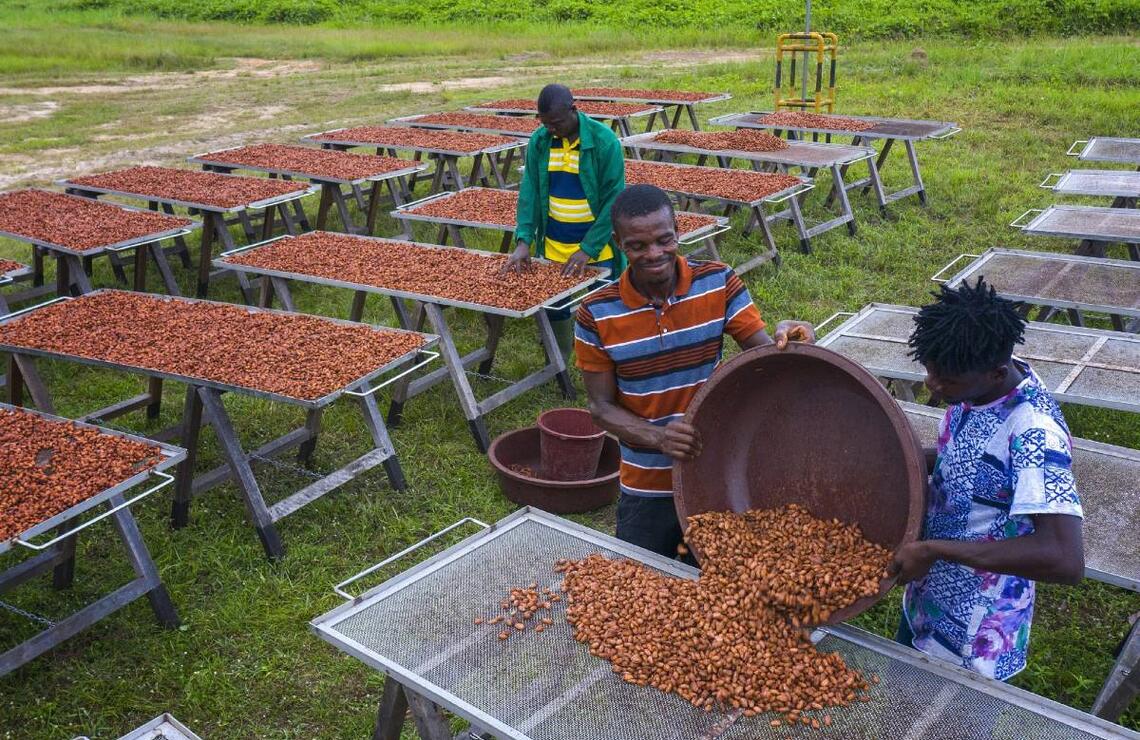
Strength and self-sufficiency
Agriculture accounts for 20% of Côte d'Ivoire's GDP and employs more than half of the working population. The country is the world's leading exporter of cocoa, with an annual production of 2 million tonnes, and cashews, at 900,000 tonnes per year. It is also the world's leading producer of cashews, with annual production rising from 100,000 tonnes in 2002 to over 1.2 million tonnes today. In 2018, the strategic agriculture sector received significant support through the National Agricultural Investment Plan (PNIA), which has a budget of 11.9 billion CFA francs over eight years. Numerous reforms have been launched to improve infrastructure and productivity, and access to finance and to ensure better income distribution. The aim is to boost local manufacturing. To date, only 30% of cocoa beans and 10% of cashew nuts are processed in the country. Achieving food sovereignty by 2030 is one of the cornerstones of President Alassane Ouattara's policy, with a particular focus on the livestock and fisheries sectors, which account for only 4.5% of agricultural GDP and 2% of overall GDP, with a view to reducing meat and fish imports. The aim is to ensure that the country produces enough to feed its 30 million inhabitants.